
2024-03-16
Vol.4
Change of Perspective Director
Kohei Kamiya
-
Deep Psyche of “Generation Zero”
-
Coji-Coji and Musashi Miyamoto
-
Placing the Evaluation Criteria in Oneself
-
New Attitude Required in Japan: Not Argumentative, Nor Silent
“The National School Rules List” is a website listing the school rules of public high schools throughout Japan. Kohei Kamiya, who launched the website, was a first-year high school student at the time. He hopes his activities become an opportunity to improve irrational and old-fashioned school rules in Japan, which have long been called “bedrock regulations” and are often described by the phrase, “There is no school rule to change the school rules.” Last year, Forbes Japan selected him for “Forbes JAPAN 30 under 30”, the award featuring 30 young people under 30 contributing to the change in the world, and his actions have attracted attention even from those outside his generation. Inviting him, a person of Generation Zero born in 2005, we discussed various topics, from the clue for overcoming the generation gap preventing adults and youth from understanding each other to a manga series, “Coji-Coji,” which both love reading.
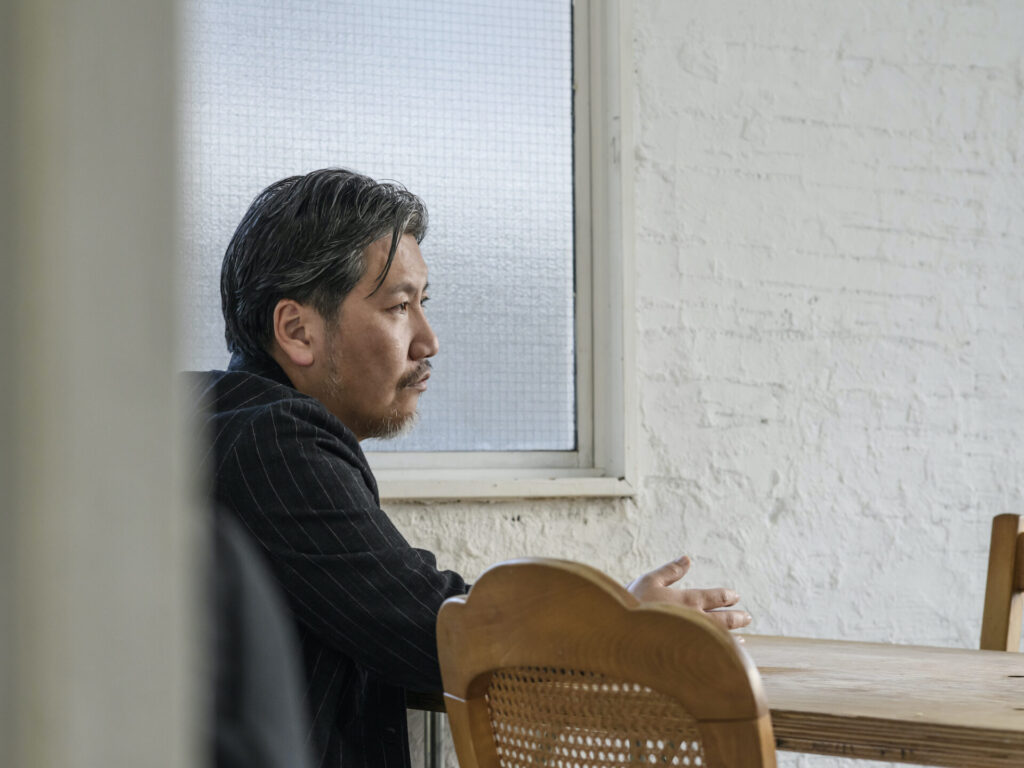
It would be a waste not to make better use of young people’s rationality. (Shigeta).
——Mr. Kamiya was born in 2005, and Ms. Shigeta was born in 1978, so this is a dialogue between two people with a 27-year age difference. It is not surprising if there is a generation gap, but first of all, Mr. Shigeta, how did you come to know Mr. Kamiya?
Masakazu Shigeta: Mr. Kamiya was introduced in Forbes Japan 30 Under 30 (30 People Under 30 Changing the World) as the founder of “the National School Rules List,” where school rules in Japan are researched and listed online. I was so surprised to know we have such a student in Takasaki. Around that time, one of my local acquaintances told me he had been meeting with Mr. Kamiya, so I asked if he could introduce Mr. Kamiya to me as a dialogue partner of Idealism. He then suggested we all have a cross-talk in a study group he hosts, so we had a three-way conversation last year. We hit it off there, and he also visited our office the other day. That is our relationship.
——What do you expect from Mr. Kamiya as today’s dialogue partner?
Shigeta: What I want to know is the deep psyche of people in his generation. I’m afraid that people in their late teens might find it difficult to reply to my questions, but I’m sure Mr. Kamiya can have an adult conversation with me since he was selected for Forbes Japan 30 Under 30.
Adults nowadays always say, “Young people these days are…” but young people complain, “Adults don’t understand us.” I have always wondered if such relationships are productive. Our company has a staff of a wide range of ages, but if the older member starts arguing that “This is how it was in our time,” it can ruin the potential of young members. It is a waste not to make better use of young people’s rationality. It is positive if complaints to each generation lead to hungry spirits, but it is useless if it makes both sides sulky. I am expecting conversations with Mr. Kamiya to give me a clue on how to make a breakthrough.
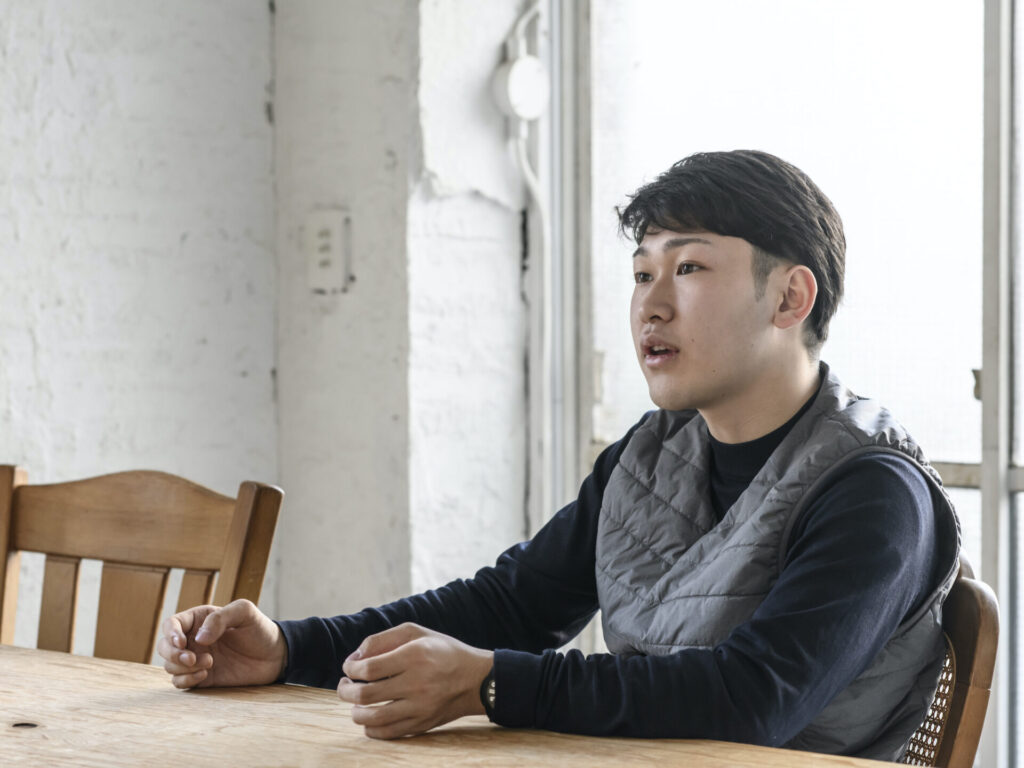
——Mr. Kamiya, you started the activities to change the school rules because you felt something was wrong with the school rules in your junior high school, right?
Kohei Kamiya: Yes. Everyone followed the school rules as a matter of course, but I often wondered if some of them were really necessary.
For example, students were required to wear white color shoes on the way to and from school, or students were not allowed to go out until 4 p.m. after school.
Ever since I was a kid, I often wondered why things were how they were.
I was the type to sweat the small stuff, and school rules were one of them. When I started the activities to change the school rules, my father often told me that it was useless and that I could not change anything. But his words brought me a rebellious spirit and motivated me to keep the activities.
——Most rules that exist in society are made by someone other than oneself, and it is natural to doubt them. However, the average people would just follow it because it would be tiresome to get angry at every one of them. What are your thoughts?
Kamiya: That might be true. I often have doubts about various rules, but most of the time, I just think about them with no action, and that’s it. The school rules were the only thing I took action on. Right now, I am focusing on changing the situation surrounding the school rules, so I have no time to think about other things.
Shigeta: For you, the activities related to school rules might be like a role-playing game. Rather than being driven by a sense of mission, you want to finish the game you started.
Kamiya: I certainly have a feeling that it would be a waste to end it in the middle. I couldn’t change anything when I started working on school rules in junior high. If I repeat the same thing in high school, I’m sure it will leave me with unacceptable feelings. So, I want to change something in high school and expand the outcome beyond school. However, realistically speaking, changing the organization from the inside is difficult, so I started collecting school rules all over Japan and made them available on the Internet so that society could throw messages to the school from the outside.
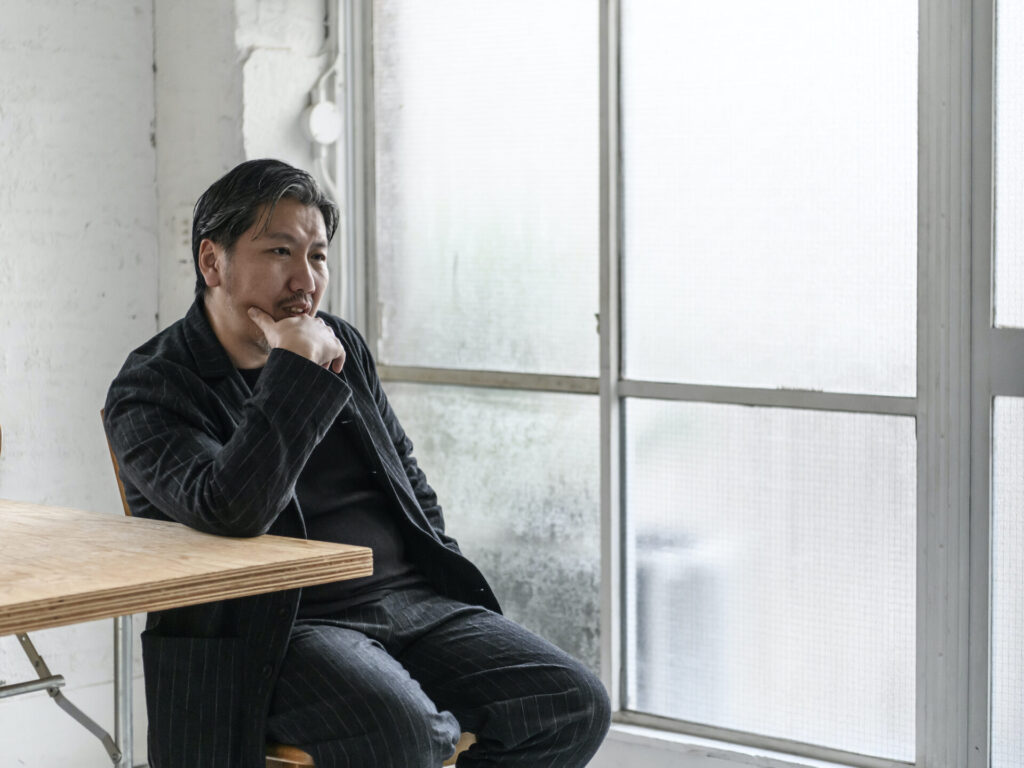
Shigeta: You are now seen as an expert on school rules problems, but I guess you will eventually need to graduate from the “Kamiya of School Rules” label.
Kamiya: I think so. I don’t know how to react if somebody asked me at 40, “You are Kamiya of School Rules, aren’t you?” (laughs)
Shigeta: The feeling you have now is a natural emotion because even in RPG, players want to start a new game once they finish it. If people around you keep treating you as the “expert on school rules problems,” you will feel uncomfortable and eventually tired of the pressure not to do things other than school rules.
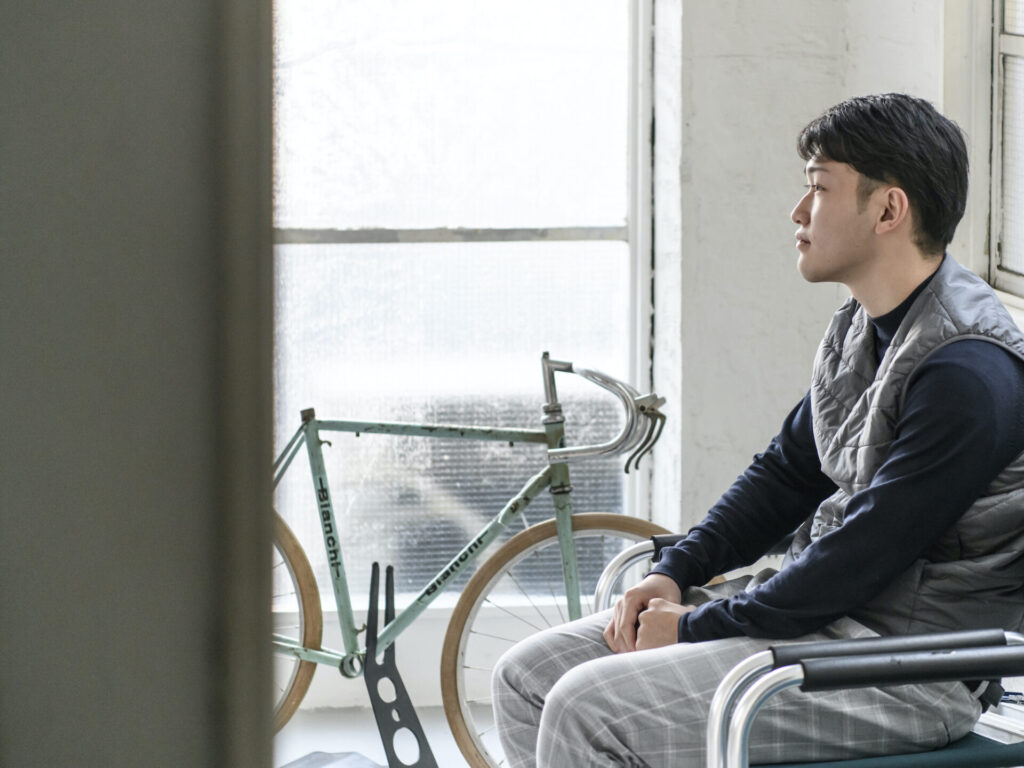
Free from stereotypes, I want to be a person who appears to be unconcerned and unattached to anything, like Coji-Coji. (Kamiya)
Shigeta: You said earlier that your father repeatedly asked you to explain your activities. How did you feel about that?
Kamiya: I didn’t like that. When I started working on the database of school rules after I entered high school, he kept asking what the point of doing something like that. He ordered me to write a proposal, which I eventually rewrote ten times. It was really tough toward the end; I was writing it thinking it would make no sense. However, I came to feel the experience helps me whenever I speak in the media.
Shigeta: Youngsters live their lives without thinking much about the future ahead.
Kamiya: In childhood, everyone was asked to write about their dreams on a piece of paper during the “Tanabata Festival” (the “Star Festival”), but I couldn’t come up with any dream. People expect elementary school children to have their dreams, such as soccer players, baseball players, or entertainers, but I couldn’t have such a dream. It was not that I was disillusioned by society, but realistically speaking, I had many friends playing soccer better than me, and I couldn’t have the confidence to survive the competition. But I thought people would think of me as a strange child if I said I had no future dream, so I wrote anyway that I would become a soccer player after graduating from the university.
Shigeta: The future is just a continuation of the present. It is not like we set the future first and accumulate the present to reach it. I used to think like you did and could not say anything when asked about my future dream as an elementary student. I once thought I wanted to be a cook because I liked cooking, but it is a bit different from a dream.
Kamiya: I can understand that feeling.
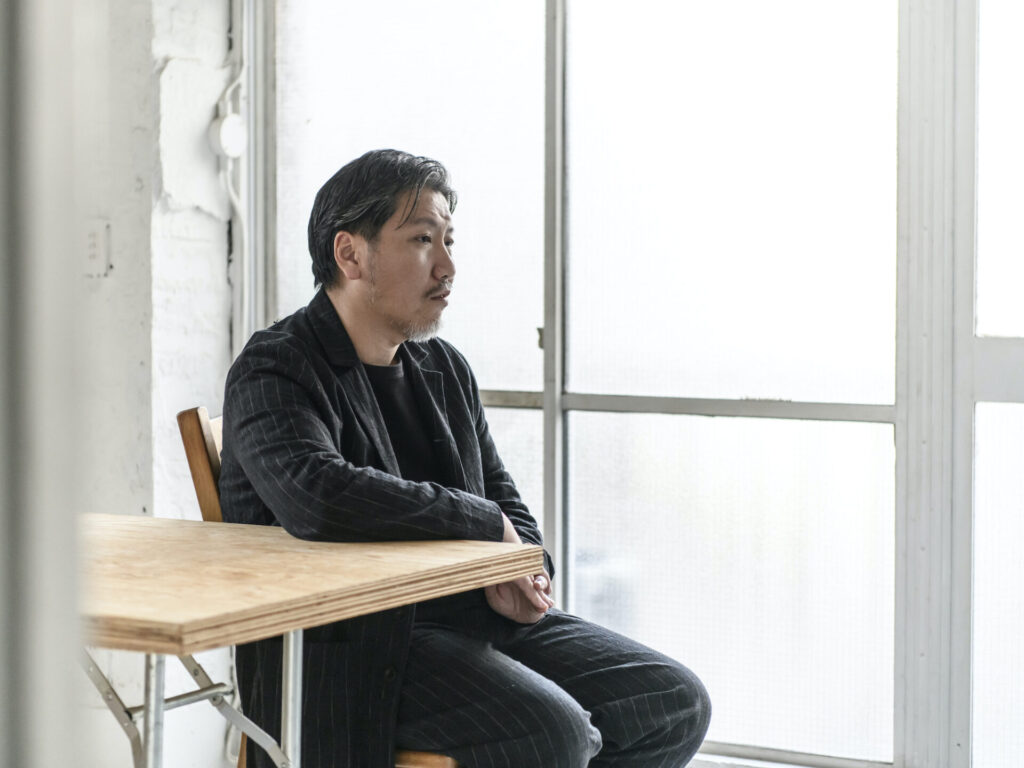
Shigeta: People regard future dreams as the symbol of one’s personality, but I believe that once you decide your personality, you can not go beyond it. The other day, I wrote about my father in the editorial postscript of the previous dialogue with Mr. Eiichi Izumi. My father always said, “The evolution of human beings means preventing your children from making the same mistakes as their parents.” I respect him on many points, but at the same time, I really disliked him for saying such a thing.
Although I eventually joined my father’s company, he was so determined not to let me make the same mistakes he had made that we quarreled on every occasion. I thought many times that I would never darken the door of my parent’s house again.
What I found wonderful about Mr. Izumi was that he faces young people with the attitude of “I failed, but I’m sure you can do well.” Superficial words have no meanings; what is important is whether or not you feel the same way as the word you use. So, I want to interact with people like Mr. Kamiya, my son, and young members of my company with an expectation that these young people will eventually accomplish something even though the approach they are making is the one I once used and failed. Then, there will be a future far beyond my expectations. The future should not be pre-determined. In a sense, realizing dreams means that the results are within the predictable range, so it is good that you could not talk about your dream when you were a child.
Shigeta: By the way, what is “Coji-Coji”? You posted about Coji-Coji on SNS the other day. In your post, a character says to Coji-Coi, “You are an idiot,” but Coji-Coji replies, “Yes. You know very well. You are smart.” After reading it, I immediately bought Coji-Coji on Amazon and decided today’s theme would be “talking about Coji-Coji.” (laughs) What do you like about Coji-Coji?
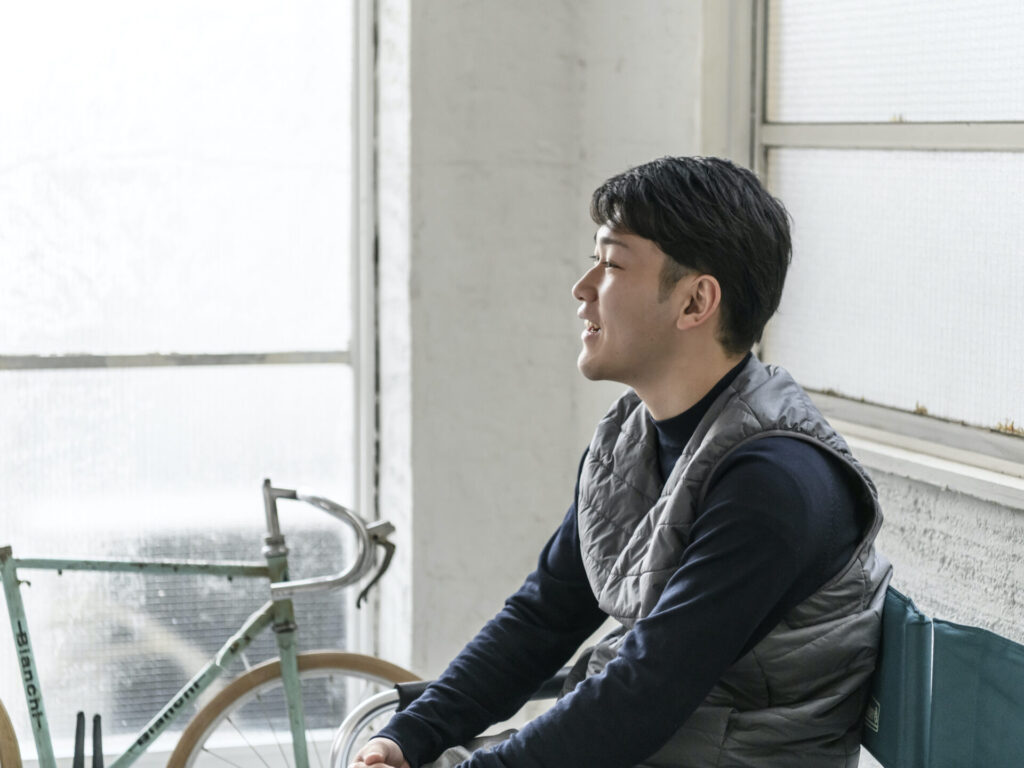
Kamiya: The character around Coji-Coji says, “This is how it should be,” but Coji-Coji replies, “I don’t think it needs to be like that. I don’t think that way.” I feel comfortable reading this kind of interaction goes on forever. Free from stereotypes, I want to be a person who appears to be unconcerned and unattached to anything, like Coji-Coji. That is my ideal life, but in reality, things don’t go well that easily. That is one of the reasons I like Coji-Coji; he makes me feel such a gap.
Shigeta: I think Coji-Coji is similar to Musashi Miyamoto. Musashi aimed for the unparalleled warrior, and ultimately, he found his ideal form in relaxing his body. I feel that Coji-Coji is a symbol of relaxation, and it overlaps with Musashi. Only a relaxed person can say, “It is stupid to take it seriously too much, isn’t it?” to someone serious about something. I feel the story of Coji-Coji is filled with such irony. No matter what troublesome thing you grumble, if the opponent says, “I don’t take it that seriously,” you can not win no matter what you do. I feel that the person who can say such a thing is considered the strongest after all. I think that is one of the interesting features of Coji-Coji, so I recommend that people around me read Coji-Coji. (laughs)
Note: “Coji-Coji”
Coji-Coji is a Japanese manga series by Momoko Sakura from 1994 to 1997, which was later adapted into an anime series in 1997. The footage is available on YouTube. The storyline is about the daily life of Coji-Coji, a mysterious creature whose age and gender are unknown, and the interaction with inhabitants in a fairy tale world. Entering the 2020s, it comes into the spotlight again as the story resonates with people today.
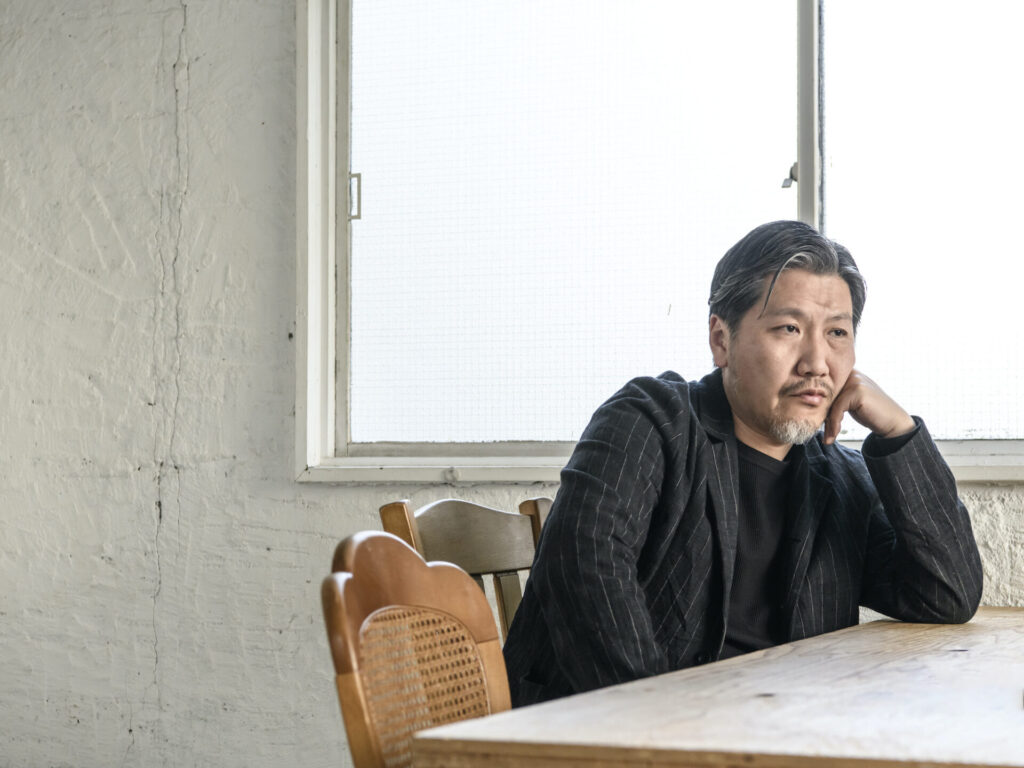
“We do what we find interesting; we just place the evaluation criterion inside ourselves.” (Shigeta)
Shigeta: People often say we must improve self-esteem, but I believe that is incorrect, and the correct answer is that we should decrease the sense of self-denial. There is no need to affirm yourself excessively, nor is there a need to deny too much. I think Coji-Coji might be in the most neutral position between self-affirmation and self-denial. Young people these days have relatively low self-esteem and low self-denial at the same time. I used to be the same when I was young. However, I never got desperate, thinking I could not do anything after all, nor was I confident enough to feel I could do anything.
Kamiya: I have a feeling similar to yours. People often say, “You can do anything, Mr. Kamiya,” or “I expect you will do social activities in addition to school rules,” but for me, it is just people around me who have expectations of me too much and I feel I’m not that good enough. I might end up doing some activities people around me expect, but I am not planning to do it right now.
Shigeta: During the high economic growth era in Japan, people were told to do the same thing as others, but later, the social atmosphere changed in the direction that people should do something different from everyone else. But the atmosphere nowadays is doing something different doesn’t fit well, either. Mr. Kamiya and I might be considered to be those who want to do something different from others, but in reality, we do not.
Kamiya: Exactly. My activities regarding school rules are not driven by the willingness to change society. Many people misunderstand me.
Shigeta: We do what we find interesting, even if it is the same as others. We select things based on the evaluation criterion inside ourselves, not just because it is something different from others.
Kamiya: I just want to go in the direction that I find interesting. I feel the direction might be slightly different from the others, though. People can get into TV games or go to concerts for their favorite idols, and such entertainment happened to be school rules to me, and that’s it. But I am always annoyed that people consider me an oddball just because of it. I always feel why.
——What motivates you to continue the activities even if some think of you that way?
Kamiya: After all, making people happy motivates me. Speaking of motivation, of course, there are ups and downs. My enthusiasm and energy were at the peak when I started my activities, and it has been gradually decreasing. But I am always happy when people appreciate my activities. I receive various comments and ideas when I appear in the media, and I enjoy seeing the responses. Although some are negative, I am happy and enjoy being in an environment where I receive them all. I would have stopped halfway if I had not been in such an environment.
Shigeta: I feel that is a very natural emotional transition. Artists can devote their lives to creating something, but I can not since I am not an artist. Instead, I can dedicate my life to making people happy with products. I started producing cosmetics because I wanted to make my sick mother happy. It wasn’t that I wanted to create cosmetics from the beginning; it was just that the output I could offer to make people happy happened to be cosmetics in my case. So, I understand what Mr. Kamiya is feeling.
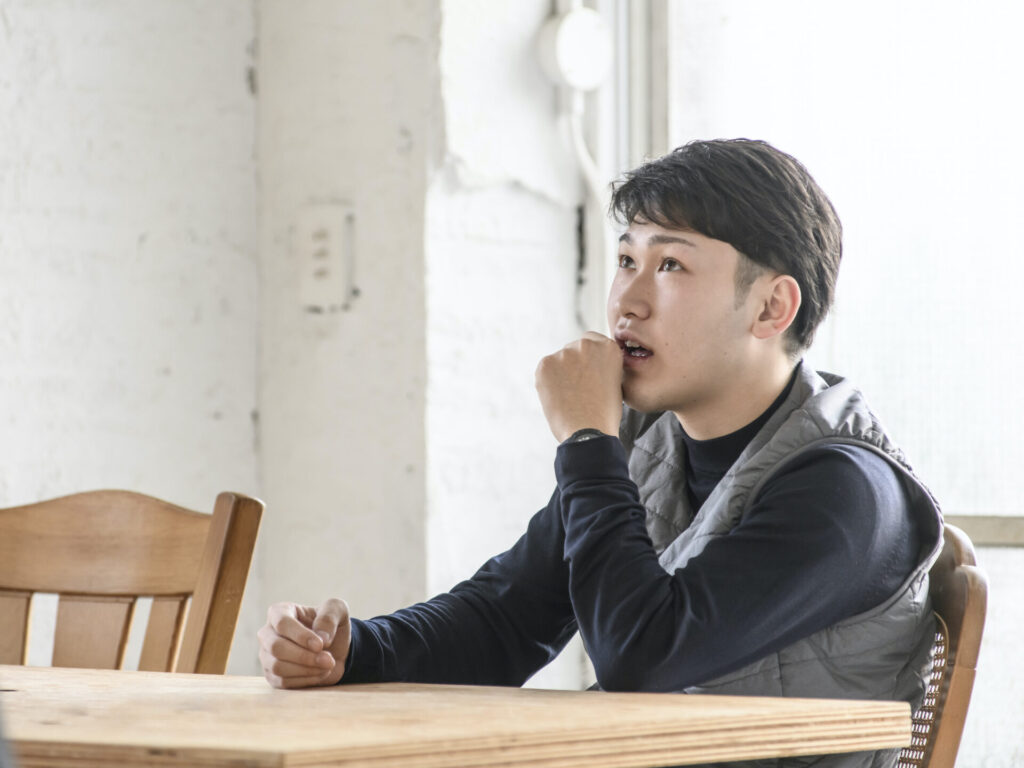
“Being a good listener will be important for creating new things.” (Kamiya)
——While researching the activities of Mr. Kamiya, I found an article regarding an awareness survey for 18-year-olds worldwide. One of the questions was, “Do you think you can change your country or society through your actions?” 80% of young people in India and more than 60% in China answered “yes,” but only 20% responded that way in Japan. What do you feel about this situation?
Kamiya: Those who say, “It’s impossible, after all,” are still OK because they have an awareness of the problems, at least. The problem is those who resist new movements and want to continue with the status quo. I think Japan is a country where the forces that don’t want to change are more powerful than those that want to change, and I believe such invisible forces lead young people to think the world will not change after all.
Shigeta: Speaking of social atmosphere, I think we must do something with the loud minority in current Japanese society because the opinions of loud minorities are often regarded as if it is the public opinion. On the other hand, it is also a problem that the silent majority remains silent. If you have any opinion, you should speak up since it can spread as the will of the people.
Kamiya: It is far from democracy in its true sense if a single opinion is regarded as public opinion. It is understandable if multiple opinions are gathered and developed into public opinion to change society. However, the advent of SNS has made individual opinions more influential than ever in today’s Japanese society. I feel something is wrong with the situation where a single opinion is recognized as the consensus of people.
Shigeta: As the expressions “okuyukashisa” and “tsutsumashiyaka,” or being modest and humble, indicate, refraining from asserting oneself has been a virtue in Japanese culture. I will not deny it entirely since it is one of the good points of Japan, but I think it is about time to blend the culture of “speaking up one’s thoughts and feelings” with it. The reason why Indian high school students believe they can change society through their actions is because they are trained in school to win the argument with their opinions. However, such behavior has been regarded as vulgar in Japan. That is Japanese culture. I expect your generation will create a new attitude that is neither argumentative nor remaining silent.

Kamiya: In discussion, winning the argument is not always the correct way. In conversations, it is important not to be self-assertive too much, isn’t it? Some say 80% listening and 20% talking is the best balance. Perhaps being a good listener is important for creating new things.
Shigeta: Your point is correct. People might think that the success in creating a romantic atmosphere depends entirely on the offering side, but in reality, it is the reaction of the receiver side that is more important. No matter how big the bouquet of roses you prepare, you can not create a romantic atmosphere if the receiver doesn’t react expressively. It is the aesthetic of the recipient. Even a single rose will create a romantic mood if the receiver says it is beautiful. Japanese people are thought to be good at hospitality, but they are good at being entertained at the same time, which has something to do with the attitude of modesty and humbleness. I think being a good listener also means setting the best environment for speakers.
——That is an advanced form of communication.
Shigeta: I think so. In today’s world, even if you can assert your opinion and win the argument, the result can end in the war. Being able to talk about your opinion is great, but it can lead to conflict with a single mistake. Japan has the philosophy of Zen and experienced defeat in the war, so I would like people to deal with the world with the attitude of “We have had enough of war.” It proves that the country is spiritually evolved.
Kamiya: I agree with you.
——Mr. Kamiya, you are graduating high school this March but will continue the activities related to school rules. What is your immediate goal?
Kamiya: The first goal is to collect the school rules of all high schools throughout Japan and release the information as a database on the Internet. Also, we are planning to conduct a fact-finding survey. For example, I want to explain the situation using numerical values, such as the decrease in the number of schools prohibiting hairstyles with shaved sides between 2023 and 2024. This sort of survey has rarely been conducted so far. The general public and experts say, “These school rules don’t make sense,” but the discussion doesn’t progress further since nobody understands the actual situation. By revealing it through the data, I believe we can increase social awareness and interest in the issue of school rules.
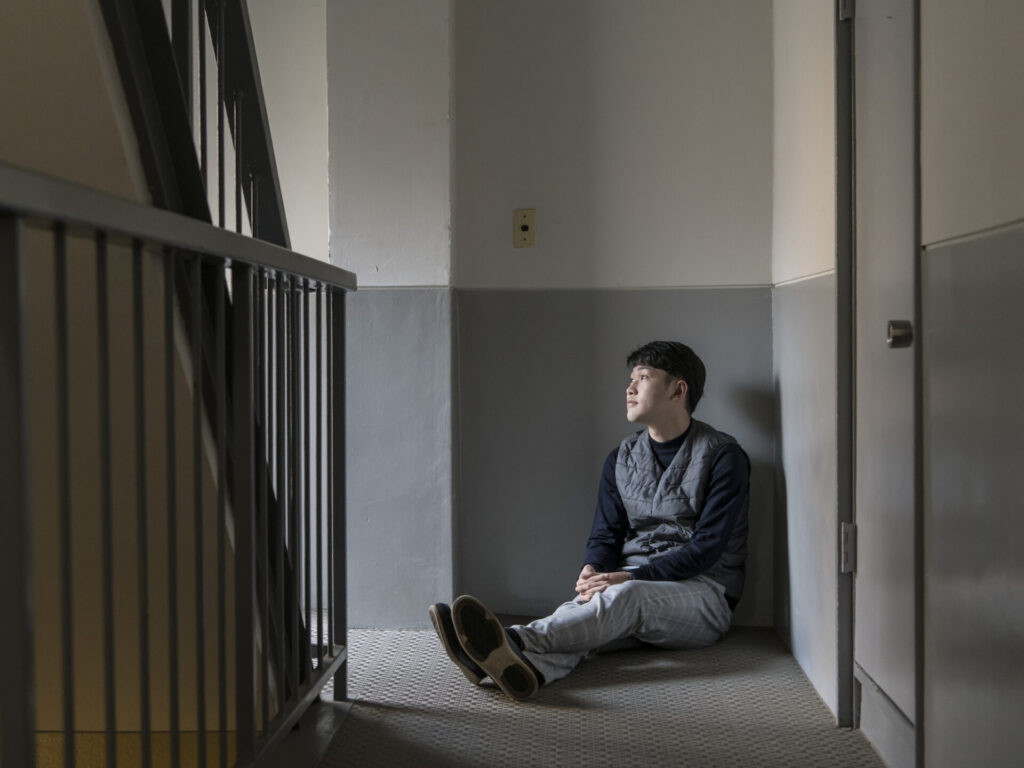
Profile
-
Kohei Kamiya
Kamiya was born in 2005 in Takasaki City, Gunma Prefecture. He started his activities regarding school rules on SNS when he had doubts about the school rules in junior high school. After entering high school, he planned and organized a website, “the National School Rules List,” which makes school rules all over Japan available online as a database based on information obtained by the information disclosure requests to the local government. So far, the website has listed school rules of 1,705 public schools, including prefectural high schools and junior high schools (as of February 18, 2024).
He has received various awards, including “the Minister of Education, Culture, Sports, Science and Technology Award” at “My Project Award 2022”, “the Idea Award” at “STEAM JAPAN AWARD 2022‐2023”, and “Forbes Japan 30 Under 30 2023”.
He is also the president of a nonprofit organization, “Change of Perspective.” -
Masakazu Shigeta
After working as an engineer in the music industry, Shigeta began his career as a cosmetics developer in 2001. Since 2004, he has produced a variety of cosmetics brands in the healthcare business of Nitto Denka Kogyo Co., Ltd., a metal surface treatment company founded by his great-grandfather.
In 2017, he founded Osaji, a skincare lifestyle brand, and became the brand director. He also produced Kako, a specialized shop for home fragrances perfume in Kuramae, Tokyo, in 2021, and a combined shop of Osaji, kako, and a restaurant enso in Kamakura, Kanagawa, in 2022.
In 2023, using Nitto Denka Kogyo’s skills, he produced a pottery brand, HEGE, and he also opened a restaurant serving rice porridge, HENGEN, in Kita-Ueno, Tokyo.
Publications
Taberu Biyou (Eating for Beauty) (SHUFU TO SEIKATSU SHA, 2024)
42-Sai ni Nattara Yameru Biyou, Hajimeru Biyou (Beauty cares to quit and start when you turn 42) (Takarajimasha, 2022)
Information
Change of Perspective
“Change of Perspective” is a nonprofit organization founded in April 2023 to disseminate information on educational matters. Seventeen members operate “the National School Rules List,” a database listing school rules all over Japan based on the information obtained by the information disclosure requests. The website allows users to search for school rules by free word input or prefecture name. The site aims to improve schools and society by increasing social awareness and interest in the issue of school rules.
www.npocop.org
-
Photographs:Eisuke Komatsubara
-
Text:Masahiro Kamijo